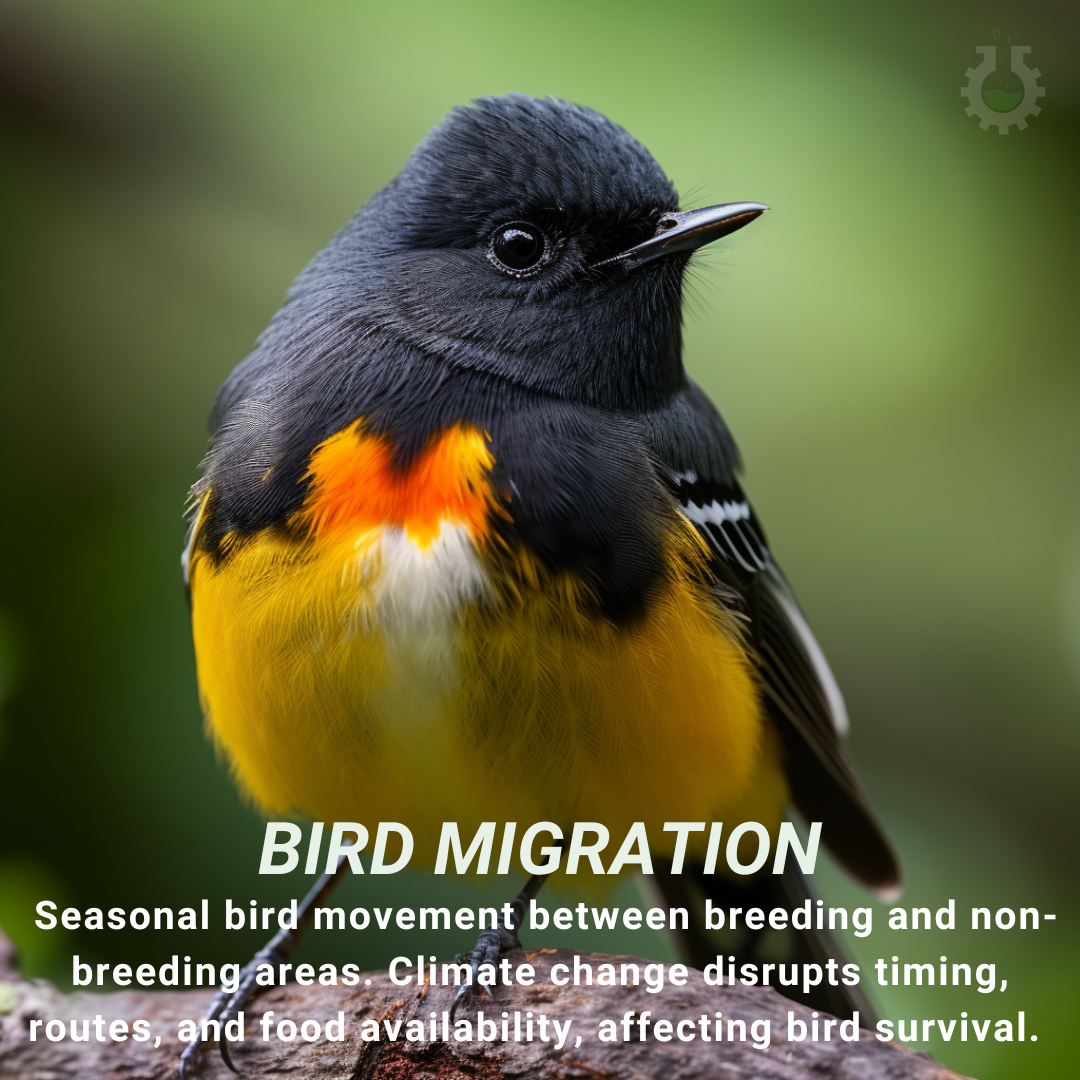October 31, 2023
Climate Change Poster Collection of the Day – Bird Migration
Book a Demo
Today’s Climate Change Poster Collection focuses on Bird Migration, the regular seasonal movement, often north and south, along a flyway, between breeding and wintering grounds. Climate change, including global warming, is having a significant impact on the natural world, and according to a recent study conducted by researchers from several universities, it is causing deteriorating habitat conditions that are affecting the timing of bird migration. This phenomenon is particularly noticeable in species such as the American Redstart, which has been observed compensating for these changes by speeding up their migration. However, this adaptation has resulted in a decline in their overall survival rate.
What’s more, birds have been found unable to recover the time lost due to delayed departures. These delays lead to late arrivals at breeding grounds, even when birds adjust their migration speed in an attempt to compensate. This shows that the effects of climate change on bird migration are multifaceted and complex, with knock-on effects that can impact the survival of species.
Furthermore, the study also revealed that climate change has induced drier conditions in regions like Jamaica. This has led to fewer insects, which are a crucial food source for migrating birds. Consequently, birds require longer preparation times for migration, further disrupting established patterns.
Notably, the research indicated that climate change is significantly altering both the timing and the paths of bird migration. This is due to early warming and diminished water availability, which alters the habitats and food sources that birds rely on during their migration.
Alarmingly, if current climate trends persist, it could potentially lead to the cessation of bird migration. This is because habitat disruption and increased environmental threats, such as extreme weather events and changes in predator populations, could make migration too risky or difficult for birds to undertake.
A separate study, led by NASA, has also shed light on the intricate relationship between bird migration timing and large-scale climate patterns. It found that bird migration variability in different regions was strongly linked to atmospheric disturbances and regional air and sea surface temperatures. This highlights how deeply interconnected migration systems are with global climate patterns, and underscores the potential impacts of climate change on bird species across the globe.
The effects of climate change on bird migration are profound and far-reaching. As global temperatures continue to rise, and habitats continue to shift and degrade, the birds that rely on these habitats for their annual migrations face an uncertain future. These studies underscore the urgent need for action on climate change, not just for the sake of our bird populations, but for the entire web of life that depends on a balanced and stable global climate.
Discover an inspiring collection of climate change poster.



